Overview
At the Otago Global Health Institute (OGHI), we foster partnerships to help solve global health problems.
OGHI is a University of Otago Research Centre. Research Centre status is awarded to groups whose research excellence is a flagship for the University.
We also work within mātauranga Māori, which aims to unlock the science and innovation potential of Māori knowledge, resources, and people—for the environmental, economic, social, and cultural benefit of New Zealand.
Aims of the Otago Global Health Institute
We work with partners in New Zealand and abroad to help find solutions together for pressing global health problems. OGHI Strategy document (PDF 490KB)
Activities
Global Health Bytes
Short monthly webinars (third Tuesday of the month, 4-4.30pm NZ time) on a range of global-health topics. Click here to view recordings of previous webinars.
• Join via Zoom Password: 303183
• or in person on the University of Otago Dunedin campus: Room AVC3, Disability Information & Support, Student Learning Centre Offices (Central Library/Information Services Building), Albany Street
- Instructions for Global Health Bytes participants (PDF 412KB)
- Instructions for Global Health Bytes speakers (PDF 458KB)
Next Global Health Byte: TBC
^
Leadership Group
Our Leadership Group comprises senior academics whose work is heavily oriented towards global health, across the University of Otago's Divisions of Commerce, Health Sciences, Humanities, and Sciences.
Professor Philip Hill, Co-Director
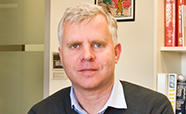 McAuley Professor of International Health, Department of Preventive and Social Medicine
McAuley Professor of International Health, Department of Preventive and Social MedicineProfessor Hill's fields of expertise include infectious diseases in low- and middle-income countries.
Professor Patrick Vakaoti, Co-Director
Te Tumu School of Māori, Pacific and Indigenous Studies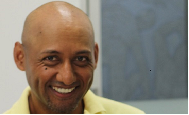
Patrick Vakaoti is interested in issues experienced by Pacific children and young people. He offers advice on Pacific engagement and relationships.
Professor Tony Binns
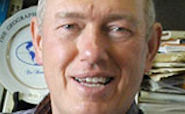 School of Geography
School of GeographyProfessor Binns has expertise in the fields of development, environment and society, human geography, and rural livelihoods in developing countries.
Professor Phil Bremer
Department of Food Science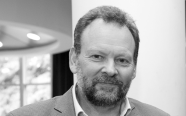
Phil is a Professor in the Department of Food Science at the University of Otago. He applies a multi-disciplinary approach involving microbiology, product development, flavour and sensory science and, increasingly, social science to determine how the way a food is produced and promoted impacts on its suitability, acceptability and value in the market place.
Professor John Crump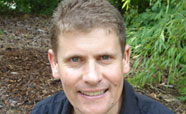
McKinlay Professor of Global Health, Department of Preventive and Social MedicineProfessor Crump's expertise is in infectious diseases in low- and middle-income countries, and ethics in global health.
Associate Professor Christina Ergler
School of Geography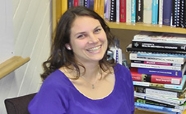
Associate Professor Christina Ergler is a geographer driven by a passion for creating just, sustainable and inclusive environments that enhance the quality of life of humans and non-humans.
Professor David Fielding
Professor of Economics, Otago Business School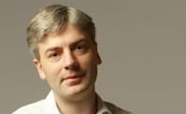
Professor Fielding's expertise is in development macroeconomics and quantitative political economy, which explores election systems and public policy-making.
Ms Jacqui Hadingham
Department of Women's and Children's Health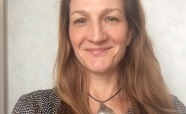
Jacqui has extensive experience in health research, ethics, and project management/implementation in under resourced settings, having worked in the private, public, non-profit/NGO and academic sectors for over 20 years.
Professor Stephen Knowles
Department of Economics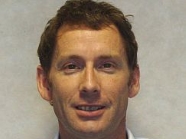
Stephen's research interests include the economics of altruism, with a specific focus on what motivates people to donate to international development charities.
Professor Miguel Quiñones-Mateu
Department of Microbiology and Immunology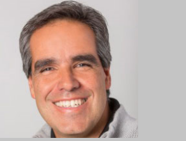
Professor Quiñones-Mateu's research interests include HIV, RNA viruses, viral evolution, drug resistance, drug discovery, metagenomics, and novel methodologies. His work currently focuses on the mechanisms and clinical consequences of drug resistant viruses, and studying latently HIV-infected cells aimed at evaluating novel strategies to eradicate HIV infection.
Professor Katrina Sharples
Department of Mathematics and Statistics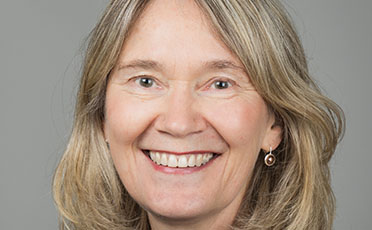
Katrina is a biostatistician with broad interests in statistical methods for clinical and epidemiological research, and particular expertise in clinical trials. She is the lead statistician for Cancer Trials New Zealand, the Centre for International Health and the Pharmacoepidemiology Research Network, and is also a member of the Centre for Translational Research in Cancer. Katrina's main areas of application are cancer, infectious disease and respiratory disease.
Professor Tony Walls
Department of Paediatrics, University of Otago Christchurch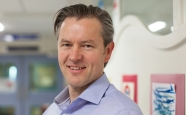 Professor Walls trained in Paediatrics at both Christchurch and Dunedin Hospitals and has an ongoing clinical interest in the management of infection in immunocompromised children. He has also worked as a Consultant at Sydney Children's Hospital, and was lead clinician for the Paediatric HIV Service.
Professor Walls trained in Paediatrics at both Christchurch and Dunedin Hospitals and has an ongoing clinical interest in the management of infection in immunocompromised children. He has also worked as a Consultant at Sydney Children's Hospital, and was lead clinician for the Paediatric HIV Service.
Advisory Group
Our Advisory Group includes people from institutions, agencies, and business, who have international standing and expertise in their field.
Professor Richard Adegbola
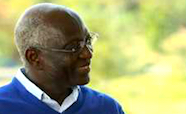 RAMBICON
RAMBICONProfessor Richard Adegbola is an independent consultant in Immunisation & Global Health at RAMBICON, Lagos, Nigeria. He obtained a PhD in Medical Microbiology (Univ. of Dundee, UK), did postdoctoral work at Biomedicum (Uppsala, Sweden), and became a Fellow of the Royal College of Pathologists (London UK). He was awarded honorary Fellowship of the Royal College of Physicians, London in 2008, elected a Fellow of the Nigerian Academy of Science in 2016. He serves on several international scientific advisory boards.
Tofilau Nina Kirifi-Alai
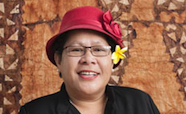 Pacific Islands Centre, University of Otago
Pacific Islands Centre, University of OtagoThe Pacific Islands Centre has a very proud tradition of assisting Pacific people achieve their goals through education.
Professor Jim Mann
Jim Mann has been Professor in Human Nutrition and Medicine at the University of Otago and Consultant Physician (Endocrinology) in Dunedin Hospital for 25 years. He is Director of the Healthier Lives National Science Challenge, Edgar Diabetes and Obesity Research (EDOR), the WHO Collaborating Centre for Human Nutrition, and Principal Investigator for the Riddet Institute, a National Centre of Research Excellence at Massey University, Palmerston North.
Professor Helen Nicholson
Deputy Vice Chancellor (External Engagement), University of Otago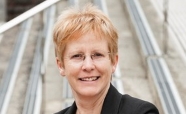
Professor Nicholson's role focusses on strengthening external engagement, raising the profile of the University of Otago and attracting high quality domestic and international students to study at Otago. Her external appointments include membership of the Confucius Institute Board, the Executive of the International Federation of Associations of Anatomists. She is an Associate Trustee of Men's Health Trust New Zealand and a member of the Governance group for the Ageing Well and Healthier Lives National Science Challenges.